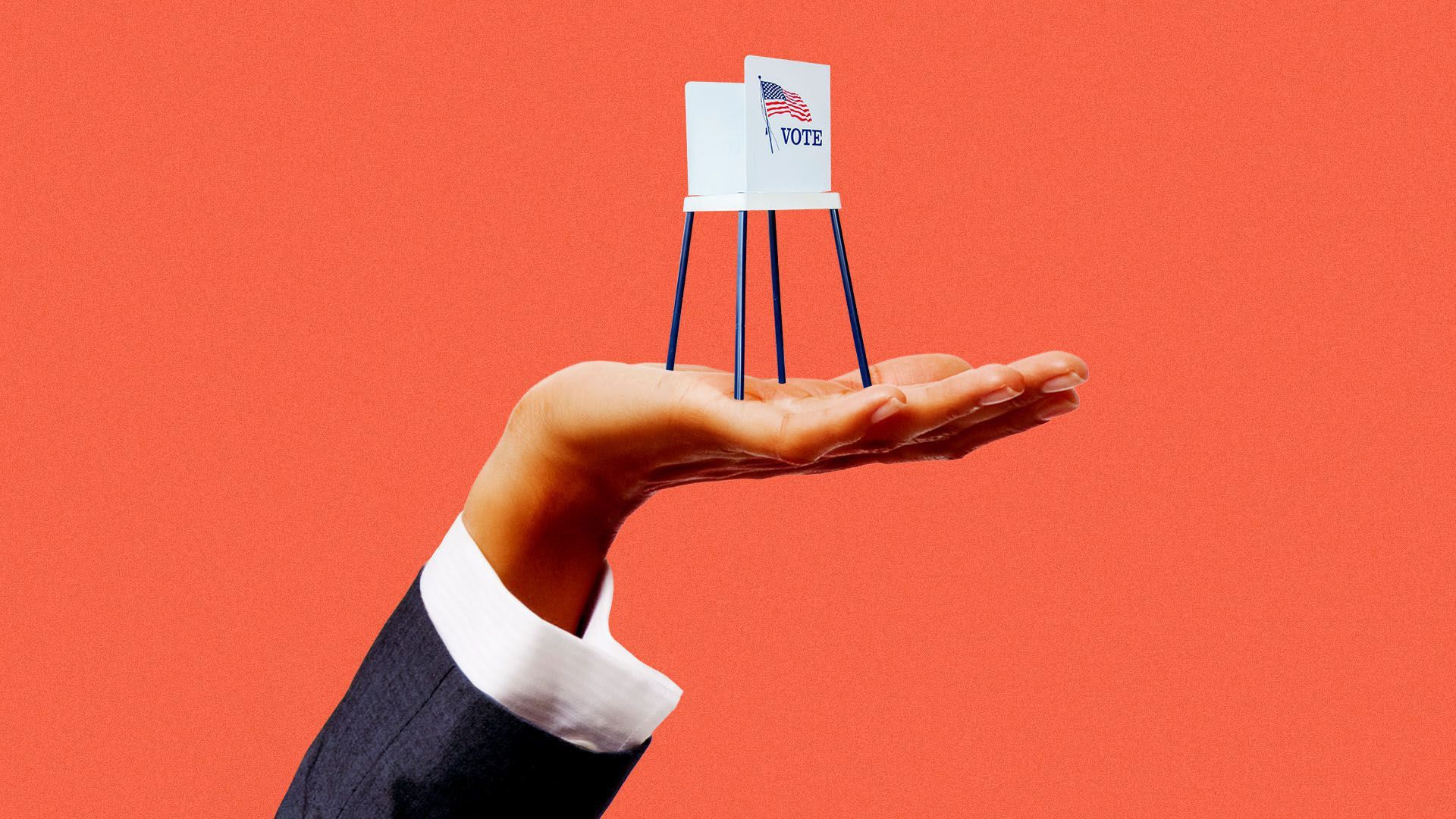Private equity dominated the 2020 election process
Add Axios as your preferred source to
see more of our stories on Google.

Illustration: Sarah Grillo/Axios
Private equity dominated Election Day. Not in terms of the winning candidates, but in terms of the election process itself.
Between the lines: The most-utilized election system and software companies are owned by U.S. private equity firms. Dominion Voting Systems is the best-known of these vendors, as it's become the subject of evidence-free conspiracy theories.
- The Canada-founded and Denver-based company was acquired in mid-2018 by Staple Street Capital, a mid-market buyout firm co-founded by Carlyle Group and Cerberus vets.
Hart InterCivic is a Texas-based company whose systems were used in some of the Michigan and Georgia counties where some conspiracy theorists baselessly claim that Dominion (not Hart) changed votes from President Trump to Joe Biden.
- Enlightenment Capital, a Washington, D.C., firm whose two lead partners have a history of significant donations to Democratic Party candidates, purchased Hart InterCivic from H.I.G. Capital this past summer.
ES&S of Omaha was founded in 1979, and appears to be the country's largest maker of voting machines.
- It's been backed for decades by private equity firm McCarthy Capital, whose current president and managing partner has donated to Republican Party candidates.
Other certified providers include: Clear Ballot Group (Boston-based startup backed by VC firms like Bessemer Venture Partners), MicroVote (owned by Fidelity National Information Solutions) and Unisyn Voting Solutions (owned by an Asian lottery group).
Of note: Axios reached out to the private equity owners of Dominion, Hart InterCivic, and ES&S. None returned any calls or emails.
- Dominion's owner is keeping a particularly low profile, removing the team, portfolio and contact pages from its website in recent days.
The bottom line: Private equity has one overarching goal, which is to general profits for itself and its investors. In the absence of any evidence to the contrary, it's very difficult to believe these firms were party to election-rigging, given that exposure of such misdeeds would destroy their portfolio companies' value.
